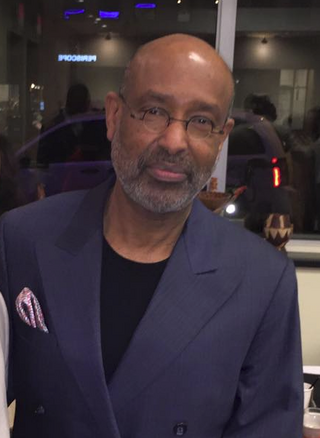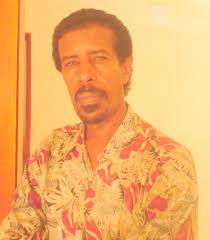
Communications in Somalia encompasses the communications services and capacity of Somalia. Telecommunications, internet, radio, print, television and postal services in the nation are largely concentrated in the private sector. Several of the telecom firms have begun expanding their activities abroad. The federal government operates two official radio and television networks, which exist alongside a number of private and foreign stations. Print media in the country is also progressively giving way to news radio stations and online portals, as internet connectivity and access increases. In 2012, a National Communications Act was also approved by Cabinet members, and 2 October 2017, the president of Somalia Finally signed the National Communications Law, and became the official Law that regulated the ICT industry. Under that Law, National Communications Authority (NCA) of the federal Republic of Somalia has been established, with board of directors and a general manager. Somalia currently is ranked first in Africa for most affordable mobile data per gigabyte and 7th in the world.

Puntland, officially the Puntland State of Somalia, is a Federal Member State in northeastern Somalia. The capital city is the city of Garoowe in the Nugal region, and its leaders declared the territory an autonomous state in 1998. Puntland had a population of 4,334,633 in 2016. Geographically to the west, Puntland lays claim to the intra-46th meridian territories that were outside European colonial rule during parts of the Scramble for Africa period.

Radio Pakistan serves as the national public broadcaster for radio in Pakistan. Although some local stations predate Radio Pakistan's founding, it is the oldest existing broadcasting network in Pakistan. The network was established on 14 August 1947, following Pakistan's independence from Britain. Radio Pakistan services include AM news services and FM 101 (music) and FM 93.

The mass media in Ethiopia consist of radio, television and the Internet, which remain under the control of the Ethiopian government, as well as private newspapers and magazines. Ten radio broadcast stations, eight AM and two shortwave, are licensed to operate in Ethiopia. The major radio broadcasting stations include Radio Fana a private station, Radio Voice of One Free Ethiopia, and the Voice of the Revolution of Tigray. The only terrestrial (broadcast) television networks are government owned and include EBC and other regional stations. In keeping with government policy, radio broadcasts occur in a variety of languages including Amharic, Afaan Oromo, Tigrigna, and more. There are also many video sharing websites which are a popular way of getting information as well as entertainment in Ethiopia.

Mass media in Somalia includes various radio, television, print and internet outlets. The federal government operates two official radio and TV networks, which exist alongside a number of private and foreign stations. Print media in the country is progressively giving way to news radio stations and online portals, as internet connectivity and access increases. In February 2013, the Ministry of Information, Posts and Telecommunication also launched a broad-based consultative process for the reformation of media legislation.

Television in Indonesia started in 1962, when the then state-run station TVRI began broadcasting – the third country in Southeast Asia to do so. TVRI held a television monopoly in Indonesia until 1989 when the first commercial station, RCTI began as a local station and was subsequently granted a national license a year later. The Indonesian television is regulated by both Ministry of Communications and Informatics (Kemenkominfo) for frequency matters and Indonesian Broadcasting Commission (KPI) for content matters.
Kuwait Television is Kuwait's official state-run television station, and part of the Kuwaiti Ministry of information.

Ahmed Ismail Samatar is a Somali writer, professor and former dean of the Institute for Global Citizenship at Macalester College. He is the editor of Bildhaan: An International Journal of Somali Studies, and brother of Abdi Ismail Samatar, chair of the geography department at the University of Minnesota. Samatar joined the Peace, Unity, and Development Party, the ruling party of the self-declared Republic of Somaliland in June 2016. Samatar is being widely touted as a possible candidate for Somaliland's 2022 presidential elections.

Radio Mogadishu is the federal government-run radio station of Somalia.
Universal Television is a Somali television channel. With its studio in London, it is the first and largest Somali TV satellite network of its type.
The Federal Government of Somalia is the internationally recognised government of Somalia, and the first attempt to create a central government in Somalia since the collapse of the Somali Democratic Republic. It replaced the Transitional Federal Government (TFG) of Somalia on 20 August 2012 with the adoption of the Constitution of Somalia.

Somaliland National Television is a Somali television channel. It is the official public service station of the government of Somaliland. Founded in 2005, it broadcasts from the country's capital of Hargeisa via terrestrial transmission, as well as to other parts of Africa and the Middle East, and Europe and Asia through satellite. The channel focuses on general Somali news, particularly items on the regional authorities. It also carries sports, entertainment and humanitarian programs.

Horn Cable TV (HCTV) is a Somali news-based private television channel.
Eastern Television Network is a Somali private television channel.

The Ministry of Interior Republic of Somaliland) "(MoL)" is a Somaliland government ministry, tasked and primarily responsible for the internal policies, state security, administration of internal affairs involving the state, the current minister is Mohamed Kahin Ahmed

The Ministry of Information and National Guidance of the Republic of Somaliland) is a Somaliland government ministry which is responsible and concerned about Information, broadcasting, and national guidance. The current minister is Suleiman Yusuf Ali (Koore).

Radio Hargeisa is a Somaliland public service broadcaster, Its headquarters are at Ministry of Information, Hargeisa.

Ahmed Hassan Awke was a veteran Somali journalist, who spent most of his life in the media industry. Awke is often considered to be one of the best Somali journalists because of his very linguistic eloquence, and was often used as a favorite commentator. He served as a special reporter for Somalia's late president Siad Barre until it collapsed in 1991. He hailed from the Jibril Abokor, a Sa'ad Musa sub-division of the Habr Awal Isaaq clan that predominately inhabits the Gabiley region.

Mohamed Kahin Ahmed is a Somaliland politician and former military officer of the Somali National Movement. He is currently serving as the Minister of Interior of Somaliland since December 2017. He has been a prominent member of the Kulmiye Party since its foundation, and served as the deputy chairman of the party from July 2010 to December 2017.

Abdilahi Husein Iman Darawal is a Somaliland politician and former senior SNM senior commander. Darawal belongs to the Arap clan of the wider Isaaq clan family.















